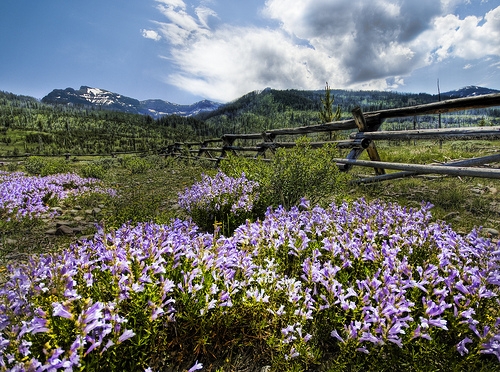David Bollier
When a corporation wants to privatize a popular phrase or symbol that it thinks will be useful for its business, it usually seizes it as a trademark. The public that popularized the catchphrase in the first place is legally prohibited from using it without authorization. An extra bit of barbed wire prohibits people from “tarnishing” or “diluting” it. After McDonald’s claimed “I’m Loving It” as its trademarked tagline and Wal-Mart claims the “happy face” as its private property, you may need a lawyer to defend your right to use those expressions in certain public ways.
But in a surprising instance of man-bites-dog, the people of Montana have fought the privatization of the phrase “the last best place” – and won. With help from Montana Governor Brian Schweitzer and Senator Max Baucus, the U.S. Senate is expected to pass legislation this year that would prohibit the Commerce Department from granting a trademark for that particular phrase. This means that the people of Montana, the State of Montana and small businesses throughout the state will be able to refer to their state as “the last best place.”

Photo by Stuck in Customs, via Flickr, licensed under a Creative Commons BY-NC-SA license.
The controversy had its beginnings in 1988 when a professor of writing at the University of Montana, William Kittridge, and Annick Smith, published an anthology of Montana writers called “The Last Best Place.” The phrase had such an immediate resonance with people in the state that everyone from real estate brokers to motels to the state tourist office began using the phrase to describe Montana. It became a way of expressing one’s identification with and affection for this vast state of enormous natural beauty and its one million inhabitants.
Enter Las Vegas businessman David E. Lipson. One of his businesses, according to one reporter, tried to obtain a trademark on the phrase. He wanted to use it to market a variety of his businesses, including The Last Best Beef. The trademark application was so broad, says a Washington trademark lawyer cited by the New York Times (August 17, 2008) that it would have given Lipson a “de facto monopoly” on use of the term. In 2004, Montana Senator Conrad Burns tried to slip an amendment into a budget bill to prevent the registration of the phrase as a trademark. But Lipson challenged the bill in court. He won at the district court level and then lost on appeal.
Now, to put the matter to rest and prevent any future challenges, Senator Baucus has introduced a stronger, more ironclad version of the legislation that has now passed in the relevant Senate and House Committees, and is expected to become law.
Perhaps there is a lesson in all this. Why shouldn’t other popular expressions be granted some sort of immunity from corporate privatization? Why should Nike, McDonald’s, Coca-Cola or Kodak be able to march in and legally “steal” for itself a phrase or image that morally belongs to the people, or some distinct collective, who gave it social currency (and thus cash value) in the first place?
Among the world’s burning issues, the deficiencies of trademark law in protecting socially created value may not be at the top of the list. On the other hand, protecting the symbols of identity and community pride is no small matter, either. Just as the citizens of Montana.
David Bollier is the editor of OntheCommons.org, an activist and writer about the commons, and author of Silent Theft, Brand Name Bullies and Viral Spiral (forthcoming).
Copyright 2008 David Bollier
This post originally appeared on ONTHECOMMONS.ORG
To read more blog entries from David Bollier and others at GUERNICA click HERE .